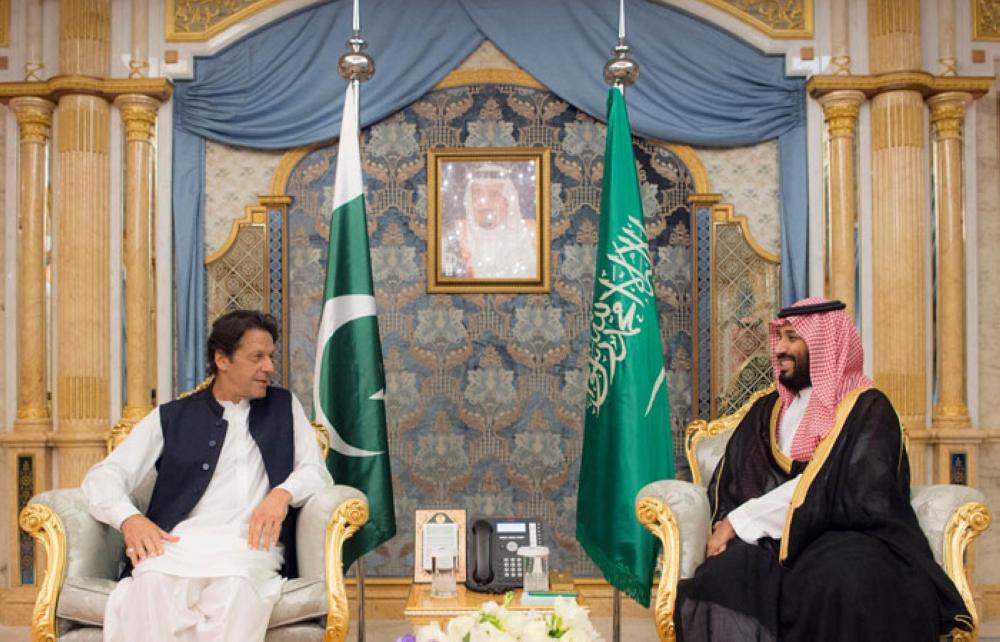Saudi agrees to a $6bn loan for Pakistan
October 25, 2018 | Expert Insights

Saudi Arabia agreed to give support worth at least $6bn to Pakistan, to help the south Asian country avert a balance of payments crisis.
Pakistan has only about 8 weeks’ worth of foreign reserves remaining to support critical imports like oil.
Background
Islamic Republic of Pakistan is a country in South Asia. Pakistan has a coastline along the Arabian Sea and the Gulf of Oman in the south. It shares land borders with Afghanistan, China, India and Iran. Pakistan occupies a geopolitically important location at the crossroads of South Asia, the Middle East, and Central Asia.
The economy of Pakistan is the 25th largest in the world in terms of purchasing power parity, and 42nd largest in terms of nominal gross domestic product. However, Pakistan's undocumented economy is estimated to be 36% of its overall economy, which is not taken into consideration when calculating per capita income. After decades of war and social instability, as of 2013, serious deficiencies in basic services such as railway transportation and electric power generation had been addressed and rectified in Pakistan.
In October 2016, the IMF chief Christine Lagarde confirmed her economic assessment in Islamabad that Pakistan's economy was 'out of crisis'. However, in recent times Pakistan’s economy has been going through a rough patch. Some economic parameters are declining while others remain somewhat stagnant. According to data combined by Bloomberg, the Pakistani rupee was Asia’s worst-performing currency this year. Some analysts expect the currency to drop further. Standard Chartered PLC predicts that the rupee will fall to 125 per dollar by the end of the year and the IMF may request authorities to weaken it even further.
Analysis
Saudi Arabia on Tuesday agreed to give support worth at least $6bn to Pakistan to help the south Asian country avert a balance of payments crisis, in a move that highlights Riyadh’s financial clout even as it struggles to emerge from a diplomatic imbroglio.
At present, Islamabad’s liquid foreign currency reserves of about $8bn are only sufficient to finance about seven to eight weeks of imports, and the government of Imran Khan, prime minister, has been seeking a new loan from the IMF.
“It was agreed Saudi Arabia will place a deposit of $3bn for a period of one year as balance of payment support. It was also agreed that a one-year deferred payment facilities for import of oil, up to $3bn will be provided by Saudi Arabia,” said Pakistan’s finance ministry in a late-evening statement.
The financial support comes as the Saudi leadership and the country’s de facto leader, Crown Prince Mohammed bin Salman, is embroiled in controversy over the killing of the journalist Jamal Khashoggi at the Saudi consulate in Istanbul earlier this month.
The Saudi Arabian loan will be roughly equivalent to one-third of Pakistan’s current account deficit of $18bn during the last financial year, which ended in June. Some analysts believe that the deficit for the present financial year may swell to $25bn or more.
Pakistani authorities formally requested financial assistance from the IMF at the fund’s annual meetings in Bali, Indonesia, on October 11. The IMF said that fund officials would be heading to Islamabad for talks with the government next month, as it starts assessing the size and details of a potential loan package.
Counterpoint
There was no guarantee that a deal could be reached with the IMF. Pakistan has been a frequent customer of the IMF, having sought a number of bailouts in recent decades — the most recent one in 2013 — so it can be expected that the IMF would want assurances that any pact would include reforms to put the country on a more solid financial footing over the long term.
Saudi Arabia is looking to rapidly diversify its oil-dominated economy and Pakistan is the perfect conduit to invest in. Additionally, Pakistan has had an unstable economic growth trajectory which has steered potential investors away.
Assessment
Our assessment is that Saudi’s decision to extend a loan to Pakistan is based on its need to diversify its economic and foreign investments. We believe that the Saudi loan effectively takes Pakistan out of its economic isolation. It shows that Pakistan has friends and it no longer depends on just China for assistance.








Comments